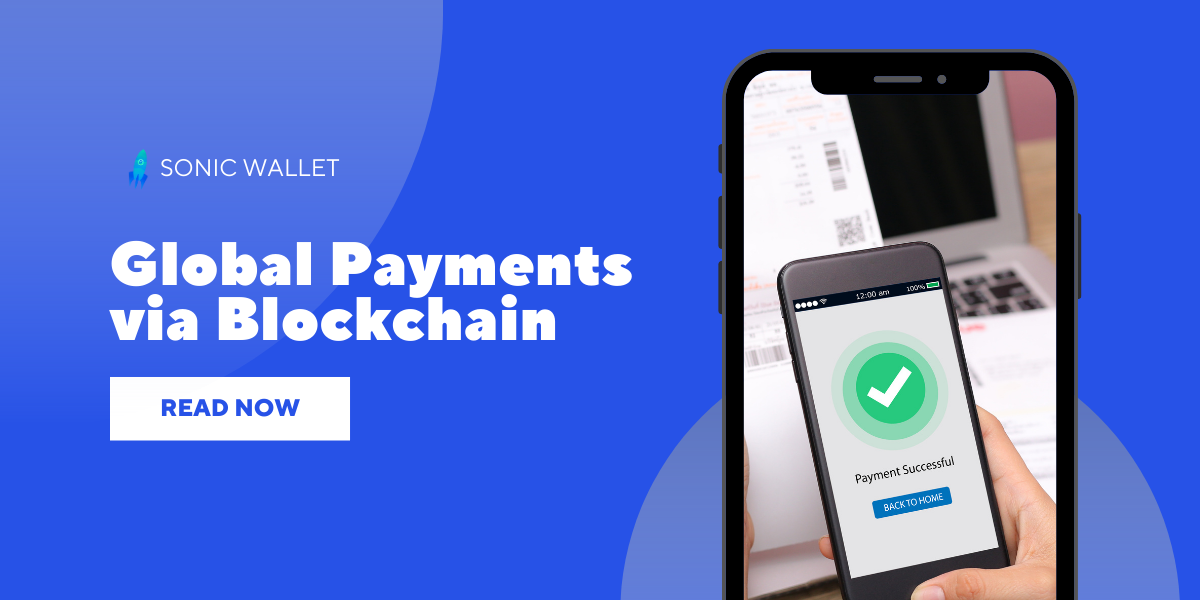Blockchain Revolutionizing Global Payments: Remittances

Sonic Team
Author
Blockchain technology has gained popularity recently and has the potential to completely change how we conduct payments. One area where blockchain-based payment is having a big impact is remittance, which is a transfer of money from one country to another.
In this blog, we'll see how blockchain revolutionizes global payments, especially the remittance industry.
Remittance Service.
Banks and money transfer operators (MTOs) have been used as a conventional method of remittance. These services, however, are frequently slow, pricey, and paper-intensive. Remittance services based on blockchain have the potential to change all of that. Remittance payments may be made fast, securely, and for a small fraction of the cost thanks to blockchain technology.
Do try out sonic wallet global transfer .
The concept behind Blockchain-based Payment Gateways
Blockchain technology can revolutionize the remittance industry by making it quicker, cheaper, and safer.
As blockchain technology is decentralized, thus no centralized party is involved in the transaction. Instead, a network of computers handles transactions. By doing away with the necessity for banks or other financial organizations to serve as middlemen, transaction times are shortened and costs are reduced.
Compared to conventional remittance techniques, blockchain technology is more secure. Blockchain uses cryptography to protect the confidentiality of transactions, preventing any tampering with the transaction data. The network as a whole can continue to handle transactions even if one machine malfunctions.
Transaction processing time with traditional payment methods can take days or even weeks. While blockchain technology may process the transactions in just a few seconds or minutes. This is due to the absence of intermediaries and a network of computers that processes all of the transactions.
Traditional remittance techniques are more expensive than blockchain-based payments. The cost of using traditional remittance methods can be significant due to transaction fees. This is due to the absence of intermediaries and the processing of transactions by a network of connected computers. Because of the lower transaction processing expenses, fees may be considerably cheaper.
Blockchain-based remittance systems, for instance, USDC, a digital currency pegged to the US dollar. As a result, cryptocurrencies' volatility is eliminated, making it simpler for users to use these systems.
You can send USDC worldwide with the Sonic Wallet.
There are now several blockchain-based remittance systems like Sonic Wallet, BitPesa, and Ripple, which are leveraging blockchain technology to offer remittance services in numerous nations.
You can send remittances worldwide through Sonic Wallet.
These platforms have demonstrated how blockchain-based remittances can be more efficient, affordable, and secure than conventional transfer techniques.
Benefits and Challenges of Blockchain-based Global Payments
Global payments via blockchain have numerous benefits, compared to conventional payment systems, they offer quicker, cheaper, and safer transactions. However, convenience comes with a price. The absence of effective regulatory management is one of the major concerns. blockchain technology is still in its infancy, there should be rules in place to control its application and promote consumer trust and mass adoption.
Scalability is also a major concern of using blockchain technology in payments, the network becomes congested when more people start to use blockchain-based payment systems, resulting might a delay in the transaction speeds. The solution for these scaling problems is to use Layer 2 and Layer 3 effectively.
Conclusion
Blockchain-based global payments are revolutionizing global payments, especially remittances. Blockchain has various advantages over traditional methods, and there are still some challenges to overcome. In the upcoming years, we may see a wider acceptance of blockchain-based payments as the technology continues to grow.
